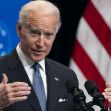The Trump administration has revoked more than 300 student visas, intensifying scrutiny on foreign-born college students accused primarily of engaging in political activism. Secretary of State Marco Rubio confirmed Thursday that these revocations were part of an ongoing effort targeting individuals labeled as threats to national security.
Speaking during a visit to Guyana, Rubio described those affected as "lunatics," asserting that the government revokes visas "every day" for individuals deemed problematic. Many affected students reportedly participated in pro-Palestinian movements sweeping college campuses last year. The administration has not provided detailed public justification for selecting specific students, though at least one individual targeted by immigration authorities appeared on lists compiled by far-right pro-Israel groups advocating deportation.
Several detained students were apprehended unexpectedly, sometimes by masked immigration agents, and transported to detention centers hundreds or even thousands of miles from their residences, often with little explanation. Among those arrested were Alireza Doroudi, an Iranian doctoral student from the University of Alabama, and Rumeysa Ozturk, a Turkish doctoral student at Tufts University. Both held valid visas and were taken into custody near their homes.
Legal experts and civil rights advocates have voiced significant concern over these detentions, viewing them as indicative of broader government efforts undermining free speech and the right to assemble. Ben Wizner, director of the ACLU’s Speech, Privacy, and Technology Project, highlighted the chilling message these actions send globally, potentially dissuading talented students from seeking education in the United States.
Kathleen Bush-Joseph of the Migration Policy Institute, speaking to NBC News, noted that such targeting deviates sharply from the administration’s stated policy of prioritizing deportation of individuals with criminal backgrounds or clear national security threats. She pointed out that U.S. authorities have extensive discretion in revoking immigration status based on broadly interpreted criteria, often cited as protecting against "potentially serious adverse foreign policy consequences."






